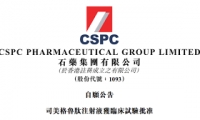-
CSPC obtains clinical approval for semaglutide weight loss indication
- Source: drugdu
- 327
- March 27, 2024
-
MHRA warns of unsafe counterfeit anti-choking devices
- Source: drugdu
- 295
- March 27, 2024
-
Novo Nordisk’s Awiqli receives CHMP recommendation to treat diabetes in adults
- Source: drugdu
- 341
- March 27, 2024
-
【EXPERT Q&A】What is the QSR820 Quality System? What is the relationship with ISO13485?
- Source: drugdu
- 432
- March 27, 2024
-
CPhI South East Asia 2024
- Source: drugdu
- 593
- March 26, 2024
-
Coin-Sized Device Rapidly Isolates Blood Plasma for Quicker and More Precise Clinical Diagnoses
- Source: drugdu
- 402
- March 26, 2024
-
Testing Method Could Help More Patients Receive Right Cancer Treatment
- Source: drugdu
- 309
- March 26, 2024
-
FDA Nod in Duchenne Helps Wider Swath of Patients With the Rare Muscle Disease
- Source: drugdu
- 442
- March 26, 2024
-
Evive Biotech’s Ryzneuta (Efbemalenograstim alfa Injection) approved in the EU
- Source: drugdu
- 571
- March 26, 2024
your submission has already been received.
OK
Subscribe
Please enter a valid Email address!
Submit
The most relevant industry news & insight will be sent to you every two weeks.

















